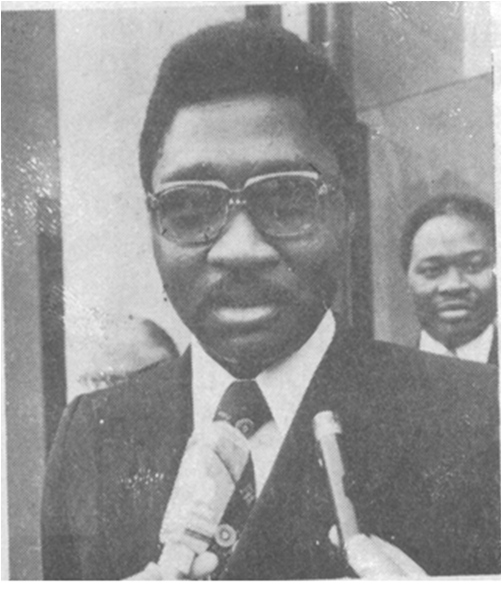Goukouni Becomes President, but Habre Says "No"
In
March 1979, the neighbours of Chad (Nigeria, Sudan, Libya, Cameroon and
Niger) brought together Malloum, Habre and Goukouni at a meeting in
Kano city, Nigeria.
An agreement was reached to form Gouvernement de
Union Nationale de Transition (GUNT), and to integrate all the private
armies into a national army. Malloum and Habre resigned. Goukouni was
named the head of the GUNT; Habre became Minister of Defence; and
Malloum remained in exile. Goukouni chose a policeman from the south.
Lt-Col. Wadal Kamougue. To be his Vice-President.
The GUNT never functioned. Habre and Goukouni kept on struggling for
power. Habre accused Goukouni of being a Libyan puppet, while Goukouni
countered by calling Habre a stooge of Western interests. Southerners;
felt that they had been relegated to inferiority. Consequently most
ministers from the south refused to take up their posts in N'djamena;
and likewise, civil servants from the south (who constituted over 70
percent of Chad's civil servants) refused to resume their jobs in
N'djamena. Indeed, there was no national government in Chad; and the
GUNT never managed to integrate the armies.

LT-COL. KAMOUGE His southern army fought against Habre's troops.
In 1980, fierce fighting erupted between the armies of Habre and
Goukouni. The southern army of Lt-Col. Kamougue also fought against
Habre's army-an army that had been receiving aid from Sudan, Egypt and
Saudi Arabia. Reconciliation attempts by France, Saudi Arabia, Togo,
Sierra Leone, Benin, and the Organization of African Unity (OAU) itself
foundered. The last resort remained a military one, perhaps.
National Movements and New States in Africa